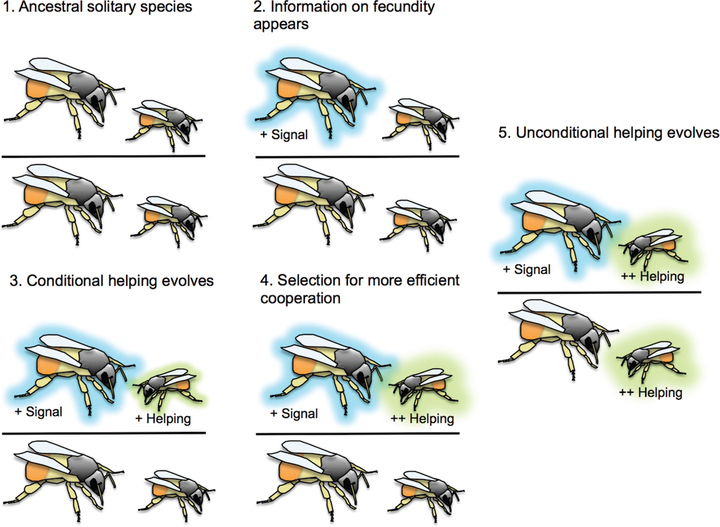Conditional helping and evolutionary transitions to eusociality and cooperative breeding

Abstract
The nonreproductive helpers of many arthropod, bird and mammal species are a perennial puzzle for evolutionary biologists. Theory and evidence suggests that helping is favored by high relatedness between social partners and by certain ecological factors. I suggest that the availability of information on reproductive value may be another important factor predicting whether helping evolves. Using simple models, I show that conditional helping strategies, in which individuals assess the reproductive value of themselves and their relatives and then help conditionally, evolve more easily than unconditional helping strategies. The models also identify conditions that cause parent–offspring conflict over helping strategy and produce predictions regarding the evolution of honest signaling and parental effects. Crucially, the evolution of facultative helping can select for specialization in helping, which in turn selects for more frequent helping, creating positive feedback. Facultative helping might thereby act as stepping-stone to advanced forms of obligate helping.